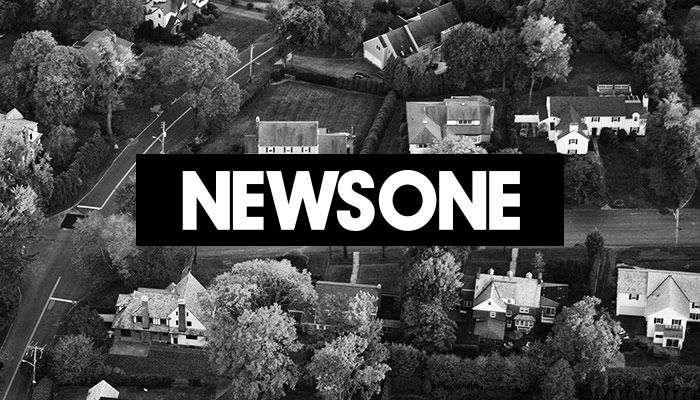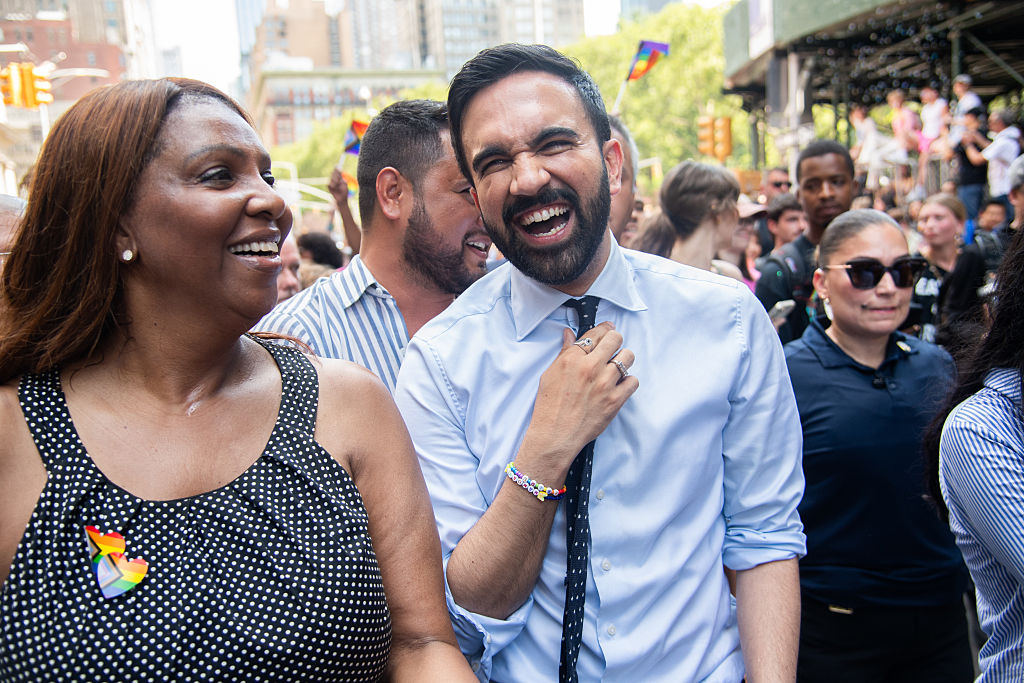'Modern Love' And The Inexcusable Whiteness Of Amazon's New Series
On The Inexcusable Whiteness Of Amazon’s ‘Modern Love’
You can pinpoint the exact moment Amazon’s “Modern Love” — an eight-episode anthology based on the New York Times’ column of the same name that has been running for 15 years — becomes a self-parody. That happens in the first few seconds of the sixth episode. The scene opens as a close-up of Maddy, played by Julia Garner, as she listens to a father’s happy birthday speech. When the camera cuts to the dad, a Black man, you think, “oh, maybe a relationship between a Black father and his white daughter. Interesting!” Then you realize that the dad belongs to the bald Black girl with a nose ring sitting next to Maddy and you think, “oh, an interracial lesbian couple, I’ll take it!”
And 10 seconds later the Black family is discarded and the story revolves around Maddy and her obsession with finding someone to treat her like a daughter. And once again, we are treated to an episode of a show about modern love in New York City that revolves solely on well-to-do able-bodied white people with a smattering of supplemental Black characters. I don’t know if this is a reflection of the people who write these essays to the New York Times or a decision that falls solely on the backs of the show-makers but one thing is clear: There is no excuse for anyone to think it’s okay to make a show like “Modern Love” in 2019.
Sure, the season is full of heart-warming scenes and touching moments that have captivated so much of the internet over the weekend. And, in a vacuum, these moments are worthy of celebration. However, when you put all of the episodes together, you see a white woman with a fancy doorman who has the financial means to raise a child by herself, an app designer and CEO, a woman who is able to bounce around from job to job while maintaining her fancy apartment and so on. This is love for the one percent, and the rest of us are on the outside looking in.
Now, there are Black people in a few of the episodes. They only exist, though, to be complements to the white characters.
There’s a Black man in the “When The Doorman Is Your Main Man” episode, but he appears at the end for 30 seconds, says maybe four sentences and is only there to show the growth between the main character and her best bud.
“Take Me As I Am, Whoever I Am” is the best episode of the season (Anne Hathaway is going to be up for Emmys) and her love interest is a Black man, but he’s only there to focus on her battles with mental illness. We don’t ever learn anything about him. Hathaway’s support comes from a Black woman who becomes the emotional caregiver, as American entertainment loves to do with Black women. In the aforementioned “So He Looked Like Dad. It Was Just Dinner, Right?” episode, the Black woman is the typical Black best friend who offers sassy feedback to the main character’s life. Even in episode seven, “Hers Was A World Of One,” the sole episode with a gay couple, one of them a Black man, manages to center the white man’s feelings at the forefront.
It’s not just the characters. It’s also the music. The soundtrack is full of music you used to be able to get on CD at Starbucks. Sure there’s some jazz from Ahmad Jamal in episode five but nearly every other song in the entire season is from the likes of Cat Power, Robert John Ardiff and Goldfrapp. New York City is the birthplace of Hip-Hop. Maybe just one, one rap song would have been optimal here?
What’s really sad is that the show is wholly unaware of its myopia. There’s a scene in episode five, “In The Hospital, An Interlude Of Clarity,” in which the two characters have what is supposed to be an endearing conversation about what kind of disabled people they would be. Seriously. He thinks being disabled would turn him into an incel. It’s a disgustingly ableist conversation and a reminder that the show could have, you know, actually featured disabled people falling in love. Imagine that.
It takes an inconceivable amount of audacity to produce a show like “Modern Love” in 2019; a show based in New York about the complexities of relationships and make it so wholly white, privileged and exclusionary. I can’t imagine the type of writer’s room and production team it takes to look at the final edits of a show like this and think it’s acceptable to green-light. Shows like this shouldn’t exist. The fact it does is a reminder that there are far too many people who think that only a certain segment of the population is human enough to experience and enjoy love while the rest of us have to watch. The love displayed in this show isn’t at all modern. It’s simply gentrified and soulless.
David Dennis, Jr. is a writer and adjunct professor of Journalism at Morehouse College. David’s writing has appeared in The Guardian, The Smoking Section, Uproxx, Playboy, The Atlantic, Complex.com and wherever people argue about things on the internet.
Read more from David Dennis, Jr. here.
SEE ALSO:
















